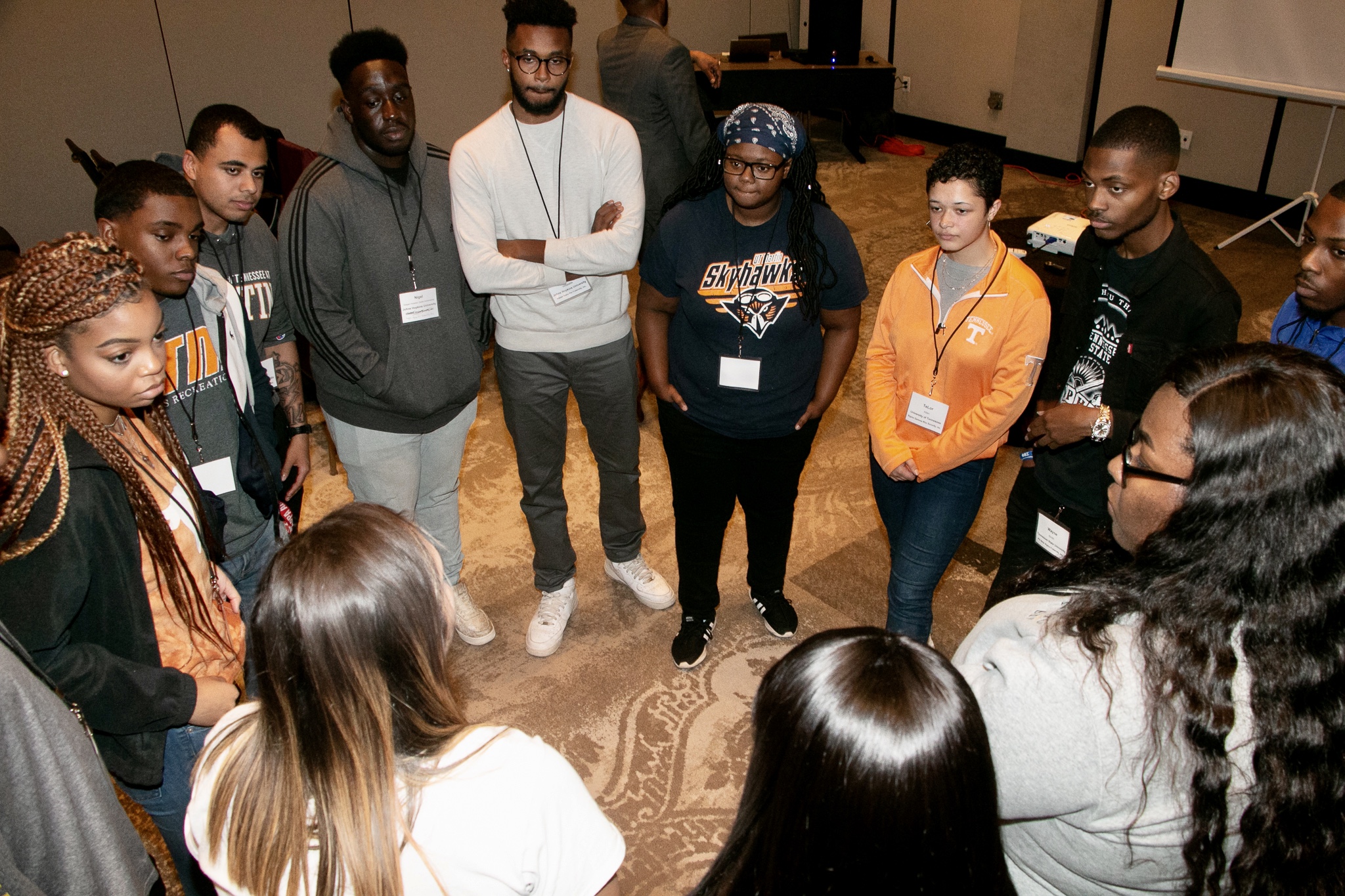
6 Priorities for Rising College Graduates
In conversation with my fellow alumni, we discussed priorities that were not the focal point of our matriculation and holistic collegiate experience. Knowing and understanding the value of these priorities can change the trajectory of individuals. Our goal is to ensure that these priorities reach students as they prepare to graduate; positioning them for success and workforce entry.
1. Establish credit while in college and maintain credit health as you prepare to graduate.
Good credit can help you qualify for lower interest rates on a student loan refinance, pass an employment background check or get approved for an apartment lease. But when it comes to building credit, students’ options may be limited due to their age and the length of their credit history.
Once you’ve laid a good foundation with your budget, savings and income, you’re on the right path to building credit. Here’s a few steps to show you how:
- Borrow only what you can afford
- Use student loans to your advantage
- Use a credit card
- Become an authorized user
- Have rent payments reported to the credit bureaus
- Monitor your credit reports
2. Leave a good and lasting impression with faculty and peers.
They are your top references. While others might seek references from family members and friends, a faculty/staff from an accredited university is a much more professional source. Whether students are applying to a national honor society, graduate school, or a potential position in their field, utilizing a faculty/staff as a reference is always a move in the right direction.
However, if students do not make the effort to build a professional, personal relationship with faculty/staff, they might deny this request. Usually professors have several classes a semester—after a few semesters or school years fly by, they might not even remember students that did not leave an impression on them. Help them put a face to your name by pursuing a professional relationship with them from the start.

3. Seek internship and apprenticeship opportunity in your field.
Participating in internships and apprenticeships can be a great way to get a taste of the actual professional experience in a particular field before you fully commit yourself. Internships and apprenticeships can serve as a way to get your foot in the door with a potential employer and build creditable experience on your resume. Internships and apprenticeships also allow you to ‘test drive’ a career. These opportunities offer a low-pressure entry into your field; through internship experiences you can decide whether to pursue the career field or not. Investing the time and commitment during an apprenticeship solidifies career entry post graduation. Apprenticeship programs have high retention rates; 91% of apprentices retain employment after the program ends. [1]
4. Do NOT get unneeded money from financial aid
Abusing financial aid may provide short-term solution to survive and meet the desires of your collegiate experience. However, when it is time to enter the workforce, this slippery slope of abuse impacts your net income and/or your credit score. This accumulated debt reduces your borrowing potential due to the loan payments being calculated in your debt to income ratio. This short-term solution now affects your long-term goals; such as home purchase, car purchase, and credit card edibility. In lieu of abusing financial aid, here are some suggestions to meet the desires of your collegiate experience:
- Earn supplemental income by tutoring your peers
- Establish a scholarship application goal per week
- Prepare a budget and discuss financial gaps with mentor and scholarship office
5. Find a Mentor
While the benefits of having a sounding board and accountability partner directly benefit the mentee, there are benefits for the mentor as well. This is why it is imperative that you find a mentor that is prepare give and receive. The mentor and mentee will put in positions that sharpen soft skills. Soft skill are transferable skills and 21st century skills. [2] The soft skills that will be enhanced with your mentor are:
- Communication
- Empathy
- Collaboration
- Networking
6. Establish 3-5 year plan
A leader is only as strong as their plan. The most qualified and experience leaders have failed before. Their failure was centered around poor decisions. These decisions were formed off of emotions. When emotional intelligence is compromised, the benefit of a 3-5 year plan is most needed. Establishing a plan allows you to build strategy while emotional intelligence is at its peak. It is vital that you review the 3-5 year plan regularly. This regular review serves as reminder and becomes a learned thought process. “Emotional tagging is the process in which emotional information attach itself to thoughts and experiences”. [3] It is wise to ensure this are what is what you use to reaffirm the longevity of your career, financial, and educational goals.
Get an early start on these priorities to position yourself a success post-graduation life.
Author

Jarrod D. Benjamin, MBA
Mr. Jarrod D. Benjamin is the Florida International University Cybersecurity Apprenticeship Program Director and Adjunct Professor. He currently manages and develops curriculum embedded certifications for the Jack D. Gordon Institute for Public Policy. He serves as a subject matter expert on the $3 million dollar Intelligence Community-Center of Academic Excellence consortium grant. His work on this grant provides a career pipeline for students to receive career opportunity in the Intelligence Community. Jarrod specializes in various business related issues, anti-hazing, and urban development.





No comment yet, add your voice below!